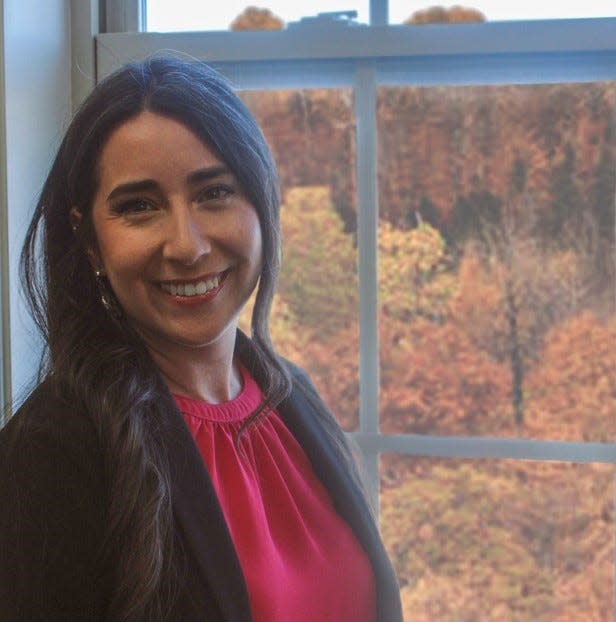Television shows get it wrong. Here's what OCD really looks like.
It had been a long week and I needed some comfort TV. I curled up in my blanket with my Chihuahua and I queued up "30 Rock." I chuckled as Liz Lemon tried to remove the plastic bag that had become the bane of her existence. I watched her desperately saw a tree branch in a last ditch effort. When an officer warned her to stop saying, “I’ve got OCD and I love doing paperwork.”
Is this was OCD really looks like?
OCD is presented in popular media so often as hand washing or counting. However, It looks different for everyone. While OCD can present as being detailed, my clinical experience has taught me that OCD is much more than being organized or hygienic.
Individuals diagnosed with OCD experience repetitive, time-consuming and distressing intrusive thoughts and compulsive actions. These compulsions can be observable— like rewriting or washing. The intrusions and compulsions may also present as repetitive words or phrases. They may ask the same question multiple times or avoid triggers like a “dirty” movie theater.
While OCD tendencies are common, only about 1.3% of people, or about 58,000 Kentuckians, experience clinical levels of OCD. Recent data suggests both individuals with OCD and those without a formal diagnosis are experiencing increased OCD-related symptoms since the COVID-19 pandemic began.
One might think ‘Wow, there must be a lot of people stressing about germs.’ In my clinical experience as a licensed psychological associate practicing in Kentucky, while I see a lot of folks struggling with contamination OCD, I’ve observed those with other types of OCD notice elevated symptoms, too.
OCD can be about more than germs.
There are four main subtypes of OCD: contamination, symmetry/arranging, taboo thoughts and concerns related to harm. Those experiencing taboo thoughts or obsessions related to harm may experience intrusive thoughts that they may inadvertently act in an appropriate, amoral, or sacrilegious way.
I’ve heard numerous reasons some feel their OCD has worsened during COVID-19. Some notice less support after long periods of social distancing, or feeling awkward while reconnecting with friends. Many say ‘I think I forgot how to talk to people.’ Some found self-care to be daunting because of COVID fears and restrictions. Likely all of us experienced more stress given the uncertainty of living through a pandemic. This fits with research identifying increased stress and social isolation as potential triggers for OCD symptoms.
I’ll still watch "30 Rock." However, I hope especially in this moment when more individuals are suffering from OCD that we can broaden our view of what OCD is and how it can impact a person beyond enjoying paperwork.
If you or someone you know is suffering from OCD there are therapies that can help. Cognitive Behavioral Therapy can help individuals with OCD face and overcome fears and change thinking patterns. Mindfulness can help individuals with OCD notice thoughts and urges without acting on them and build relaxation skills. Medication can help change brain chemistry to reduce anxiety and OCD symptoms.

Brenda Arellano, MS, LPA (she/her), is a bilingual (English | Spanish) therapist at the Behavioral Wellness Clinic, where she specializes in treatment for OCD and anxiety. In addition to her clinical work, Brenda also serves as the Kentucky Psychological Association's (KPA) board of directors At-Large Representative and is an active member of the Continuing Education Committee.
Resources in Kentucky:
Behavioral Wellness Clinic11824 Ransum Dr.Louisville KY 40243(502) 338-0608
Next Step 2 Mental Health9720 Park Plaza AveUNIT 102Louisville, KY 40241(502) 339-2442
Kentucky Center for Anxiety and Related Disorders (KY-CARDS)4205 Springhurst BlvdSTE 202Louisville, KY 40241(502) 618-2060
The Cognitive Refinery948 Elm StreetSuite 2Bowling Green, KY 42101(270) 854-0297
ABC Therapy Solutions2365 Harrodsburg RdSuite B215Lexington, KY 40504(859) 338-7122
This article originally appeared on Louisville Courier Journal: Television shows get it wrong. Here's what OCD really looks like.
